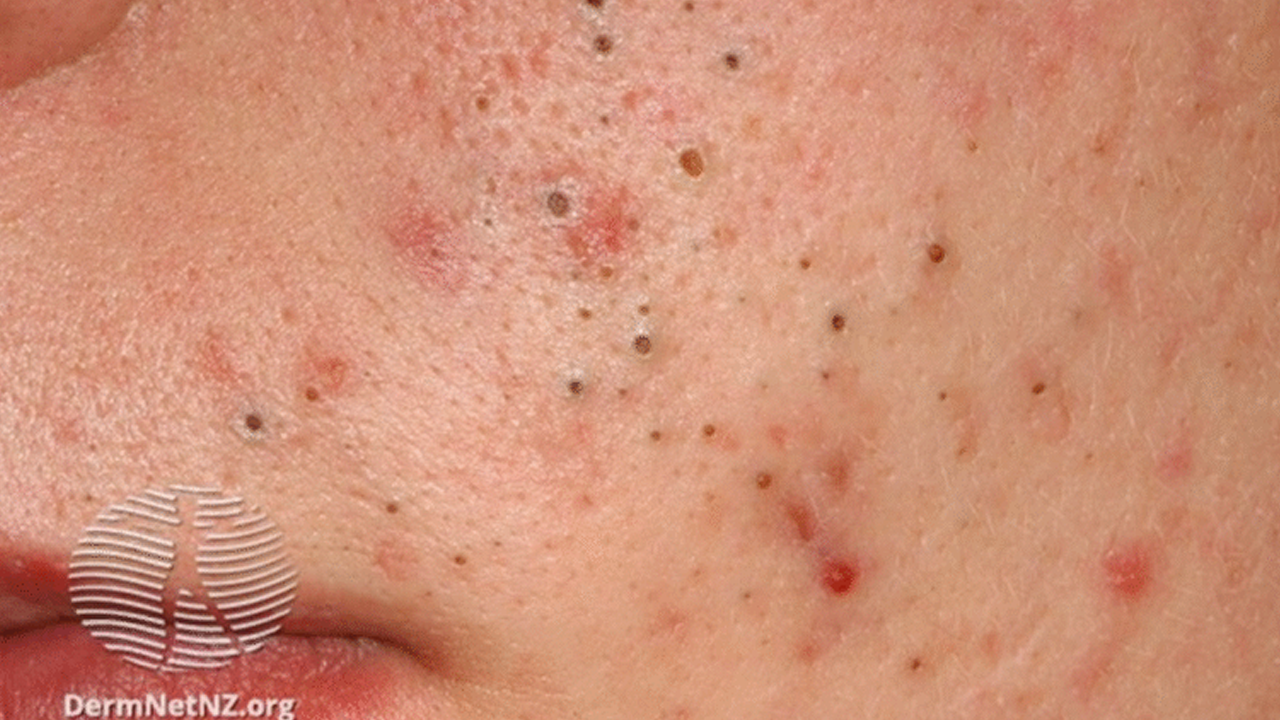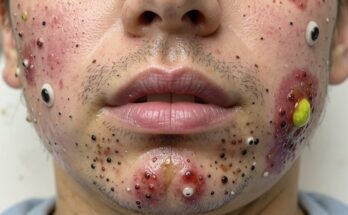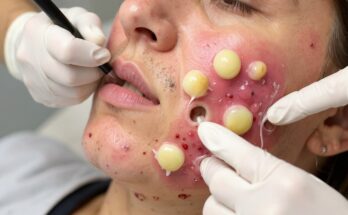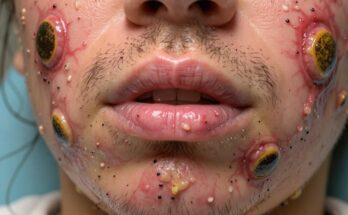Understanding and Treating Blackheads: A Comprehensive Guide
Blackheads, also known as open comedones, are a common skin concern affecting many. But what exactly causes these unsightly blemishes? Let’s delve into the science behind blackheads and explore effective treatment options.
The Root Cause of Blackheads
Blackheads emerge when a pore becomes clogged with a mixture of dead skin cells, sebum (the skin’s natural oil), and bacteria. This blockage prevents the usual expulsion of these materials, leading to the formation of a dark spot at the surface – the characteristic blackhead. These pesky blemishes frequently appear on the face (nose, chin, forehead), chest, and back.
Preventing Blackhead Formation: Proactive Skincare
Preventing blackheads requires a consistent and gentle approach to skincare. Regular cleansing is crucial; opt for a mild cleanser to remove dirt and excess oil without stripping your skin’s natural moisture barrier. Incorporating exfoliation two to three times a week can further help prevent pore clogging by removing accumulated dead skin cells. This exfoliation should be gentle, to avoid irritation.
Treating Existing Blackheads: Safe and Effective Methods
While preventing blackheads is ideal, established blemishes may require targeted treatment. While tempting, squeezing or popping blackheads can cause scarring and inflammation. If you choose to do so, follow the recommended procedures outlined by dermatologists, ensuring clean hands or sterile tools are used. Gently pressing around the edges of the blackhead is the safest approach, encouraging the blockage to release without damaging the skin.
Advanced Acne Treatment Options: When Home Care Isn’t Enough
For more persistent or severe acne, including blackheads, professional help may be necessary. A consultation with a dermatologist or skincare specialist is essential for personalized treatment plans. They can assess your skin’s condition and recommend tailored solutions, including:
In-Office Treatments and Customized Product Regimens
Experienced estheticians can provide various in-office treatments, such as professional extractions and chemical peels. Following these treatments, a personalized regimen of skincare products will be designed to address your specific needs and continue the treatment process at home.
Prescription Medications for Severe Acne
If topical treatments prove insufficient, oral medications, such as antibiotics or isotretinoin (for severe cases), may be prescribed. These medications target the underlying causes of acne, often providing more significant results than over-the-counter solutions. These might be combined with prescription gels or creams for topical application.
Laser Therapy and Other Advanced Techniques
For those who have tried various treatments without success, laser therapy can offer a targeted solution. This advanced treatment focuses on reducing inflammation and promoting clearer skin.
Hormonal Factors and Holistic Approaches
In some instances, hormonal imbalances may contribute to acne. In these cases, a holistic approach focusing on balancing hormone levels might be considered, often alongside other therapies.
Managing Stress for Clearer Skin
Stress can exacerbate acne. Stress-reduction techniques, such as yoga, meditation, or sufficient sleep, are significant in promoting overall well-being and potentially improving skin health.
Understanding and Treating Whiteheads
Whiteheads, or closed comedones, are another common type of acne. Similar to blackheads, they result from clogged pores, but the blockage is beneath the skin’s surface, appearing as small, white bumps. Milia, another type of whitehead, often appear in infants but can also occur in adults. These are small, hard bumps caused by trapped keratin.
Treatment Options for Whiteheads
Treatment options for whiteheads vary depending on the severity and individual needs. Topical treatments containing benzoyl peroxide or salicylic acid can help unclog pores and reduce inflammation. For more severe cases, oral medications, chemical peels, or microdermabrasion may be recommended by a dermatologist. As with blackheads, professional intervention may provide the best path to clear skin. Always consult a dermatologist for the most effective and safe treatment plan for your specific needs and skin type.



